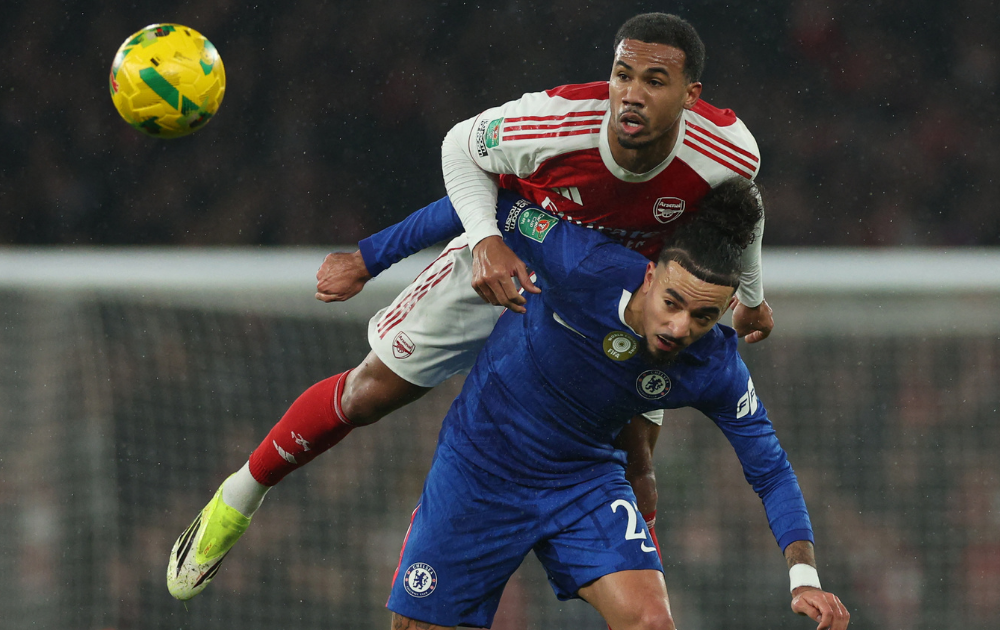Ranked! The 10 best players of World Cup 2010
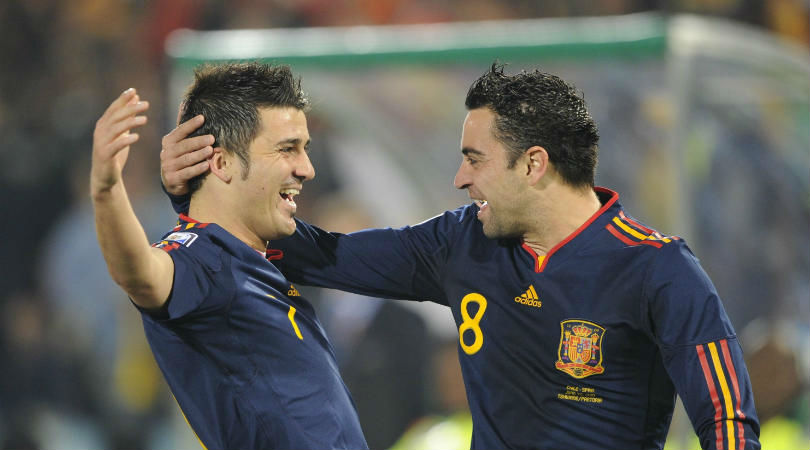
The best from 2010
Africa’s first ever World Cup will live long in the memory – unless you support England – thanks to a series of wonderful moments and individual performances. Who can forget the incessant drone of the Vuvuzela, Siphiwe Tshabalala’s ‘goal for all Africa’ and ITV cutting to a car advert during England’s best moment of the entire tournament?
In this slideshow, we pick out the 10 best players from the 2010 World Cup...
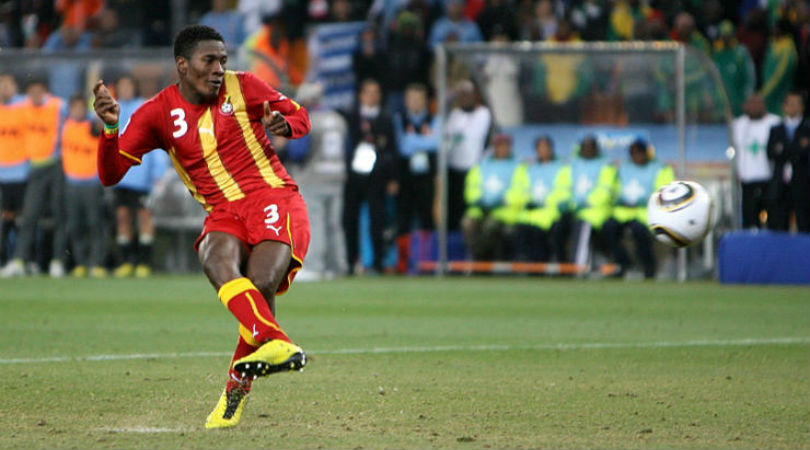
10. Asamoah Gyan (Ghana)
The Black Stars carried the flag for Africa at the 2010 World Cup, led by a series of wonderful performances from Gyan. The striker's two group stage goals helped Ghana into the knockout stage of the competition, where another Gyan strike took them Stars beyond the United States and into the quarter-finals.
Ghana's meeting with Uruguay in the last eight produced one of the most dramatic moments in World Cup history, with Luis Suarez sent off for handballing on the line and Gyan smashing the resultant penalty against the bar in stoppage time. The future Sunderland forward later scored in the shoot-out but Uruguay emerged victorious.
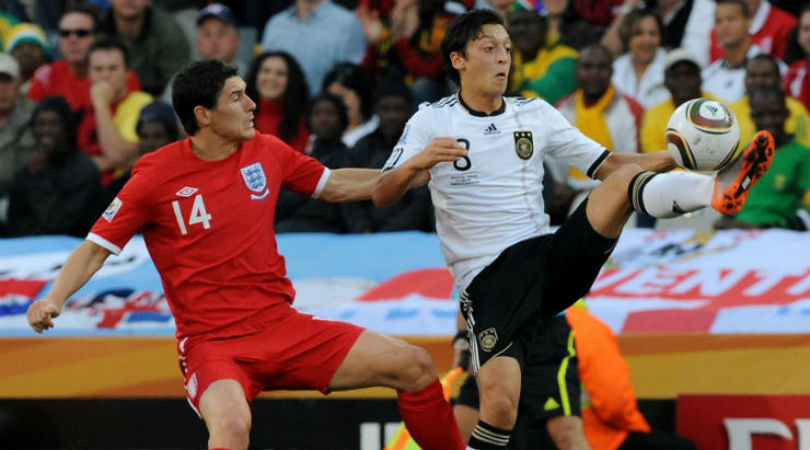
9. Mesut Ozil (Germany)
Few players polarise opinion like Ozil, but at his very best he is one of the finest playmakers around – and the 2010 World Cup saw the Arsenal man at his peak. He was the unstoppable creative force behind a goal-crazed Germany side who found the net 16 times – a quarter of which came against England in what was Ozil’s best individual performance.
Germany were clinical on the break, and the then-Werder Bremen player’s ability to pick the right pass under pressure proved key. Real Madrid were certainly impressed, forking out a reported €15m to sign him ahead of Barcelona, Arsenal and Manchester United.
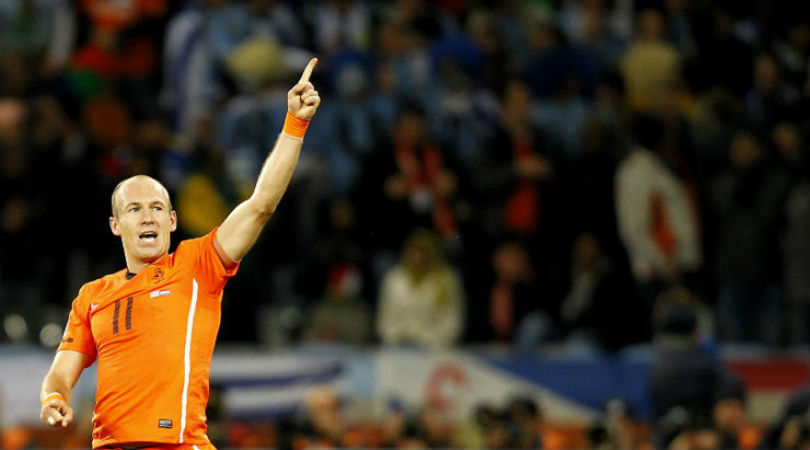
8. Arjen Robben (Netherlands)
Robben was one of the best players at the 2010 World Cup despite beginning the tournament with a hamstring injury which restricted him to one appearance off the bench in the group stage. He justified his inclusion in the Dutch squad with his performances in the knockout phase, scoring against Slovakia in the round of 16 and in the semi-final against Uruguay.
He also spurned Holland’s best chance in the final against Spain, with his one-on-one stopped by Iker Casillas' leg when the scores were still level – a miss which the winger says still haunts him today.
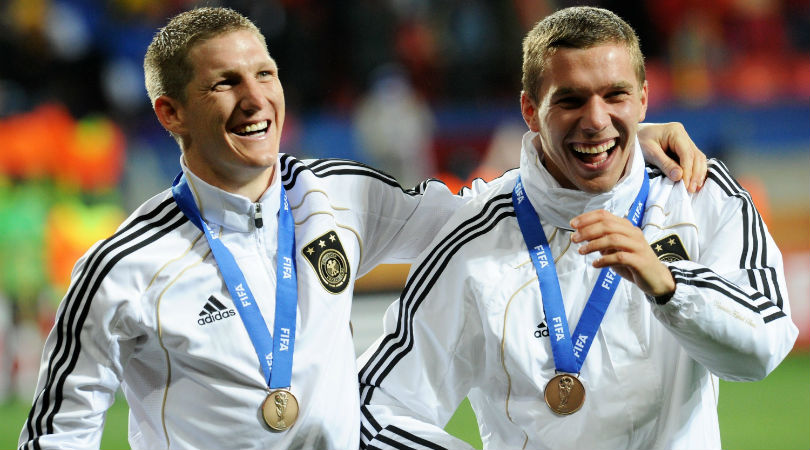
7. Bastian Schweinsteiger (Germany)
The Schweinsteiger English football fans got to see during his brief spell with Manchester United was as far removed from him at his best as it's possible to get. In 2010 he was 25 years old, quick, powerful, mobile and mature beyond his years.
Tasked with replacing the injured Michael Ballack in the heart of the German midfield, he did so without missing a step and answered some pre-match criticism from Diego Maradona by delivering his best performance against Argentina in the quarter-finals.
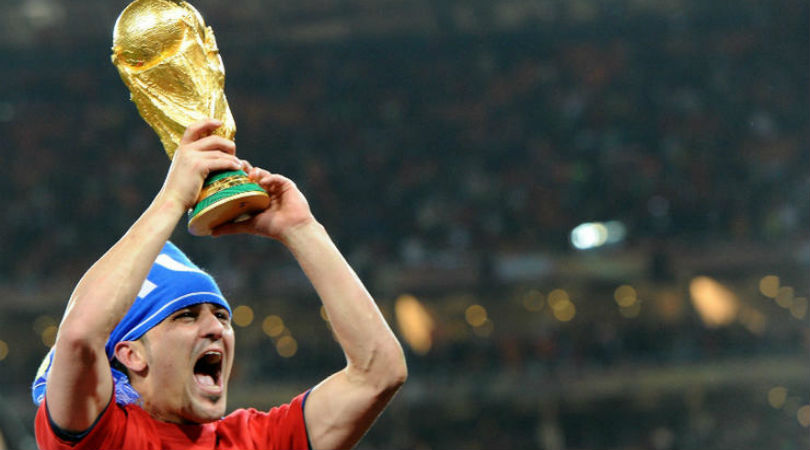
6. David Villa (Spain)
Valencia striker Villa had scored the goals at Euro 2008 to deliver Spain’s first trophy in a generation, and did exactly the same two years later in South Africa. He netted five of the eight La Roja managed throughout the tournament, notching twice in the group stage against Honduras to steady the ship after Spain had lost their opening match against Switzerland.
Another effort against Chile saw them through to the knockout rounds, where he grabbed the only goal of the game as Portugal were brushed aside in the last 16. He underlined his importance to the cause by doing exactly the same in the quarters against Paraguay, with his late strike sending Spain into the semi-finals of a World Cup for the first time since 1950.
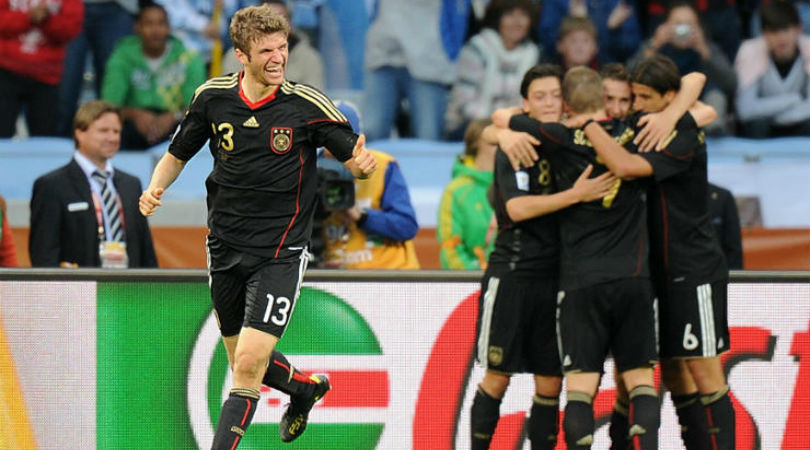
5. Thomas Muller (Germany)
Bayern Munich forward Muller hit the World Cup ground running, scoring five and assisting another three in his first major tournament for Germany at just 20 years old. It was a Golden Boot-winning performance from the youngster, who only had a single full Bundesliga campaign under his belt before the big kick-off in South Africa.
Playing on the right of midfield, Muller opened his account against Australia in the group stage, before scoring twice against England and once against both Argentina and Uruguay in the knockout rounds.
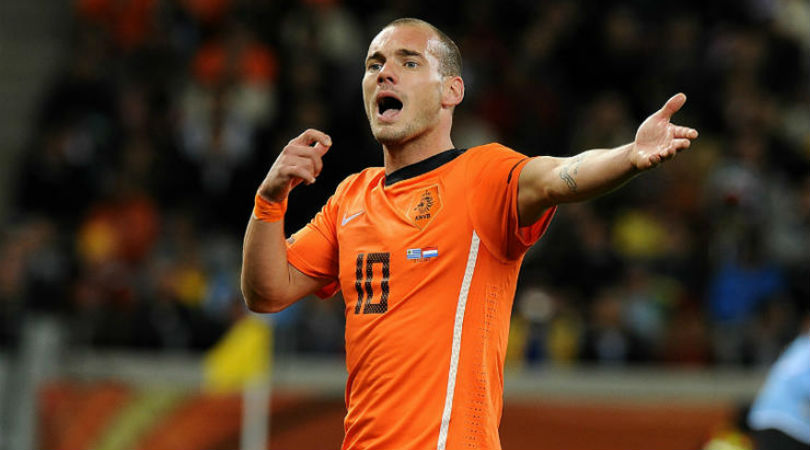
4. Wesley Sneijder (Netherlands)
2010 was an incredible year for Dutchman Sneijder. He was the creative force in Jose Mourinho’s treble-winning Inter side and took his impeccable form to South Africa, where his five goals helped the Oranje to the World Cup final at Soccer City in Johannesburg.
Sneijder peaked in the quarter-final victory over Brazil, scoring both goals as the Dutch came from behind to win 2-1 in Port Elizabeth. He scored again in the semi-final against Uruguay, putting his side 2-1 up in the second half of a game they eventually won 3-2.
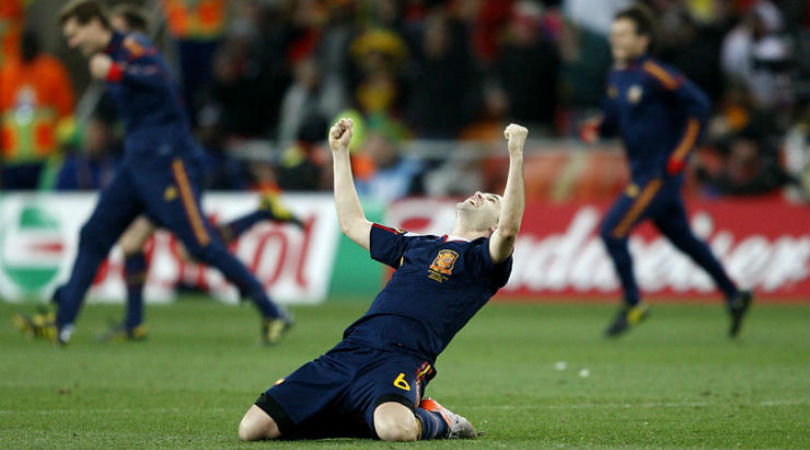
3. Andres Iniesta (Spain)
If Xavi was the foundation stone of Spain’s success between 2008 and 2012, Iniesta was the filigree detail – the artistic flourish that completed the structure. The Barcelona man was the counterweight to Xavi’s metronomic presence, the man who broke down teams who refused to be passed to death.
At his very best Iniesta could be relied upon to pop up between the lines and devastate opponents with an assist or a goal – and in a glorious career which delivered nine league titles, four Champions Leagues and a host of other trophies, none was more important than the strike to win the World Cup for Spain in South Africa.
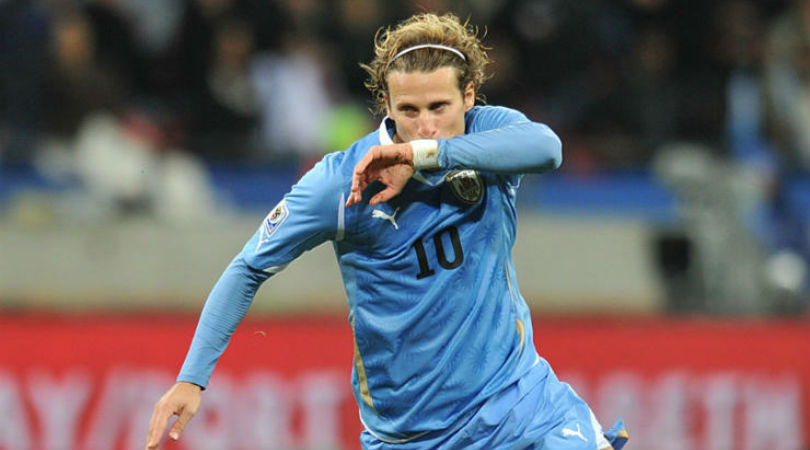
2. Diego Forlan (Uruguay)
Forlan arrived at the World Cup in South Africa fresh from scoring both goals in Atletico Madrid's Europa League Final victory over Fulham, and he continued to find the net with regularity in South Africa. The former Manchester United man netted twice in the group stage victory over the hosts, one a long-range strike and the other from the penalty spot.
He later fired home a free-kick in the controversial quarter-final defeat of Ghana, before efforts from outside the area against Netherlands in the semi-final and Germany in the third place play-off took his tally for the tournament to five - enough to win him the Golden Ball.
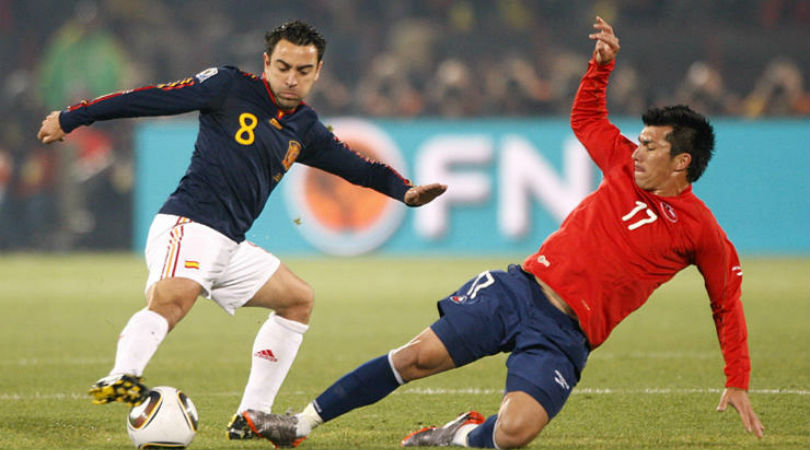
1. Xavi (Spain)
La Roja entered the World Cup as favourites to triumph, having been crowned European champions two summers before. Pep Guardiola’s Barcelona side were dominant at club level and supplied the national team with Gerard Pique, Carles Puyol, Andres Iniesta, Sergio Busquets and Pedro Rodriguez, but no one was more important than Xavi.
The midfield metronome was at his brilliant best in South Africa, controlling the tempo and rhythm of Spain's possession-based game throughout. He completed more passes at a higher completion rate than anyone else in the competition, helping Vicente del Bosque's charges go all the way to the trophy.
 Join The Club
Join The Club










